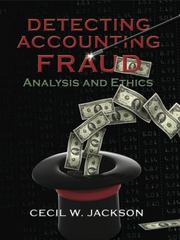Question
Complete business activity and instalment activity statements in Australia Advanced BAS Topics Cash or Accrual Accounting There are two accounting methods used to account for
Complete business activity and instalment activity statements in Australia
Advanced BAS Topics
Cash or Accrual Accounting
There are two accounting methods used to account for GST cash and non-cash (accruals).
Under cash accounting, the taxing point is when cash passes from a buyer to a seller. Therefore, a GST liability arises only when payment is received for a sales tax invoice (GST Collected) and input tax credits (GST Paid) arise only when purchase tax invoices are paid to suppliers.
The method used is determined by the turnover of the business.
If a business meets any of the following criteria it can report on the cash basis, otherwise the business must report on the accruals basis:
The business's annual turnover is less than $10 million.
The entity is not a business and its GST turnover is $2 million or less.
Income tax is accounted for on a cash basis.
The business carried on a kind of enterprise the ATO has agreed can account for GST on a cash basis regardless of GST turnover.
The business is an endorsed charitable institution, trustee of an endorsed charitable fund, gift deductible entity or government school, regardless of GST turnover.
The entities above may still be eligible for simpler GST reporting, regardless of their accounting methods, if they meet the relevant GST turnover requirement (under $10 million).
There is another method available for entities using a manual bookkeeping system or appropriate accounting software that may assist in preparing the Business Activity Statement.
| Readily identify GST amounts for its: |
| Sales: |
| Purchases. |
| Importations. |
| Separately record any purchases or importations that were for either: |
| Private use. |
| Making input taxed sales. |
| Identify any GST-free or input taxed sales. |
Many commercial accounting software packages such as MYOB and Quickbooks have built-in tax codes attached to different kinds of transactions, such as sales and expenses. At the end of the period, a summary report can be produced for each tax code. The amounts summarised on this summary report often correspond directly with labels on the BAS.
When choosing which method of preparing the BAS to use, the advantages and disadvantages of each should be considered:
Lodgment Procedure
The taxpayer can lodge the activity statement online via the Internet using the ATO's Business Portal or electronic commerce interface (ECI). These are fast, convenient and secure ways to lodge the BAS/IAS
Registered tax agents and registered BAS agents can help prepare and lodge a taxpayer's activity statement. Most tax agents/BAS agents can lodge activity statements electronically via the electronic lodgement service (ELS).
If the taxpayer has no amount to report at any label due to no business activity during the period, lodgement of the BAS/IAS can be made over the telephone. The ATO's telephone service accepts lodgements for activity statements that are up to six months overdue.
Otherwise, the completed BAS/IAS can be mailed directly to the ATO using the pre- addressed envelope provided.
When mailing the BAS/LAS, the taxpayer must use the official form provided by the ATO. Many commercial accounting software products can produce a document very similar in appearance to the official activity statement. While this document is fine for record keeping purposes, it must not be mailed to the ATO as a substitute for the official form.
Late Lodgement Penalties
The penalty for lodging an activity statement late is one penalty unit ($210 for breaches occurring on or after 31 July 2017) for each 28 day period, or part of a period, that the activity statement is outstanding, up to a maximum of 5 penalty units ($1,050), For a business with an annual turnover between $1 million but less than $20 million, the penalty is multiplied by two. For a large business with an annual turnover of $20 million or more, the penalty is multiplied by five, resulting in a maximum penalty of $5,250. The ATO has also introduced the concept of Significant Global Entities (SGEs), whose global income exceeds A$1 billion in a year, as part of the Tax Laws Amendment (Combating Multinational Tax Avoidance) Act 2015. Penalties for false statements and Failure-To-Lodge penalties are significantly increased for SGEs, Late lodgement may attract as much as $525,000 FTL penalties (for more than 16 weeks late) for these taxpayers.
The Commissioner of Taxation also has the discretion to remit this penalty. The circumstances of a business, such as the amount of tax payable, the past record of paying tax and lodging tax forms, and the effort made by the taxpayer in trying to meet its tax obligations, will affect whether and how much of the penalties may be remitted.
Pleas help answer and Explain the following:
1. What are the two methods available for accounting for GST? In your own words, explain the difference between the two methods.
2. For a business to prepare the Business Activity Statement using the accounts method, what must its accounting records be able to identify?
3. If Jones Upholstery accidentally lodge their Activity Statement 4 weeks late and it is the first offence,
(a) What would the penalty be (expressed in penalty units)?
(b) Would your answer be different if they had repeatedly lodged late in the past?
(c) Draft an email from the accountant to management to set up a meeting to discuss why it is important that sufficient funds are always available to meet statutory requirements to the ATO.
Step by Step Solution
There are 3 Steps involved in it
Step: 1

Get Instant Access to Expert-Tailored Solutions
See step-by-step solutions with expert insights and AI powered tools for academic success
Step: 2

Step: 3

Ace Your Homework with AI
Get the answers you need in no time with our AI-driven, step-by-step assistance
Get Started


